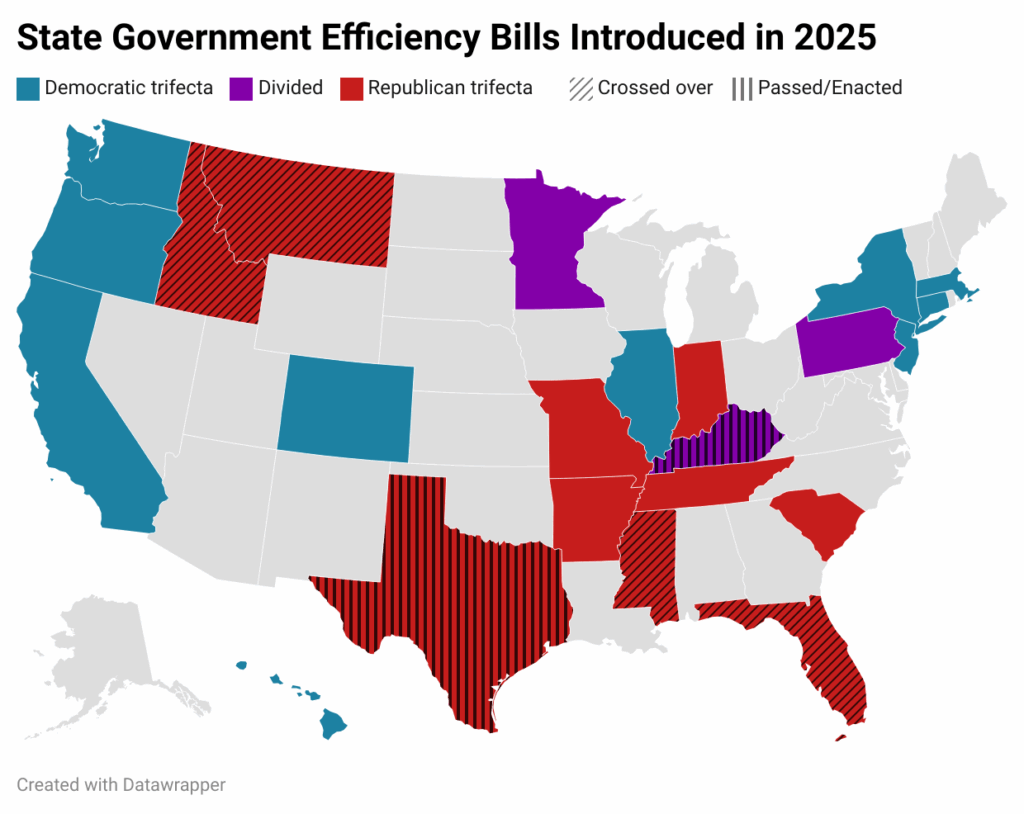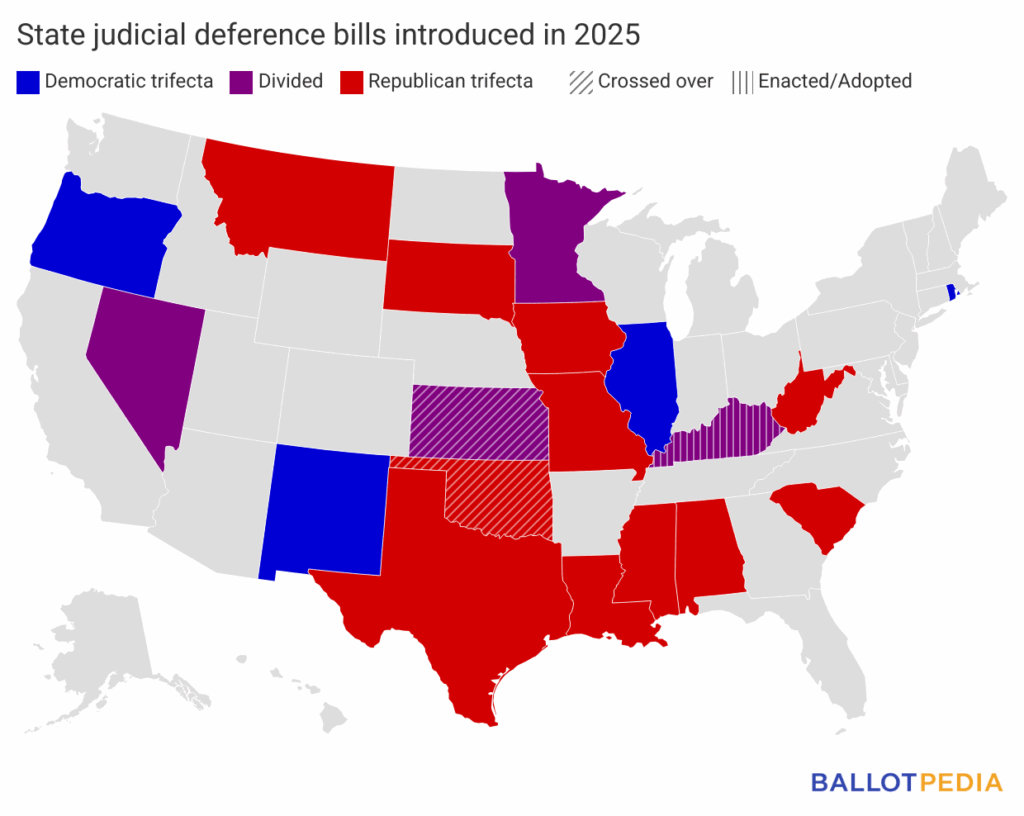On April 14, 2025, the Texas Legislature approved Senate Bill 14 and sent it to the governor’s office. SB 14 was designed to create a new department tasked with promoting efficiency in the Texas state government and prohibit judicial deference to state agencies.
If signed into law, the bill would establish a Texas Regulatory Efficiency Office under the governor’s office, responsible for identifying inefficiencies in the agency rulemaking process and creating informational materials on efficient governance, as well as a Regulatory Efficiency Advisory Panel, responsible for advising the Regulatory Efficiency Office. The bill also set regulatory reduction goals for other state agencies. SB14 also prohibited courts from “giving deference to any legal determination by a state agency.”
The state House approved SB 14 by a vote of 97-51 on April 9, 2025. In the House, 84 Republicans and 13 Democrats voted for the bill, and two Republicans joined 49 Democrats against it. The state Senate approved SB 14 by a vote of 26-5 on March 26, 2025. In the Senate, 19 Republicans and seven Democrats were in favor, and one Republican joined the four Democrats against. The bill was sent to Gov. Greg Abbott (R) for signature. Abbot has said he supports the bill.
Texas Lt. Governor Dan Patrick (R) said, “I prioritized SB 14 because President Trump’s creation of the ‘Department of Government Efficiency’ inspired me to find ways Texas can save taxpayers and businesses money by cutting burdensome regulations.” Texas Rep. Giovanni Capriglione (R) said, “Senate Bill 14 is necessary to strengthen the integrity of the rulemaking process, increase transparency and assure regulatory efficiency.”
Texas Rep. Brian Harrison (R) opposed the bill, saying, “The point of DOGE is to cut government, reduce spending and shrink the bureaucracy. Unfortunately, this bill does the exact opposite. This bill grows government. […] it expands the executive branch of government when we should be clawing back power from the executive branch to the legislative branch.” Adrian Shelley, Texas director of Public Citizen, opposed the bill’s removal of judicial deference for agency determinations of law, saying, “SB 14 would further undermine existing protections… ending Chevron deference allows ideological judges to substitute their policy preferences for the expertise of state agencies. It’s a rejection of science and a step backward for Texas.”
Tracking government efficiency bills in 2025
SB14 is one of several dozen state-level bills introduced in 2025 modeled on President Donald Trump’s (R) federal-level Department of Government Efficiency (DOGE). SB14 would be the second state-level bill of this kind to be enacted in 2025, after Kentucky’s SR240, which created a Discipline of Government Efficiency Task Force under the Kentucky Legislature. Earlier in 2025, the governors of Iowa, Oklahoma, New Hampshire, and Louisiana (all Republicans) signed executive orders establishing state-level government efficiency groups. Other states (for example, Montana and Arizona) have existing government efficiency initiatives established before 2025.
Overall, Ballotpedia is tracking 52 bills in 23 states and 12 bills in Congress related to government efficiency. Bills have been enacted or passed by at least one chamber in Florida, Kentucky, Idaho, Montana, Mississippi, and Texas.

Tracking judicial deference bills in 2025
Kentucky also enacted a bill in 2025 prohibiting or restricting judicial deference to state agencies. In 2024, three other states — Idaho, Indiana, and Nebraska — enacted similar bills. Overall in 2025, Ballotpedia is tracking 34 bills related to judicial deference.

Additional reading


